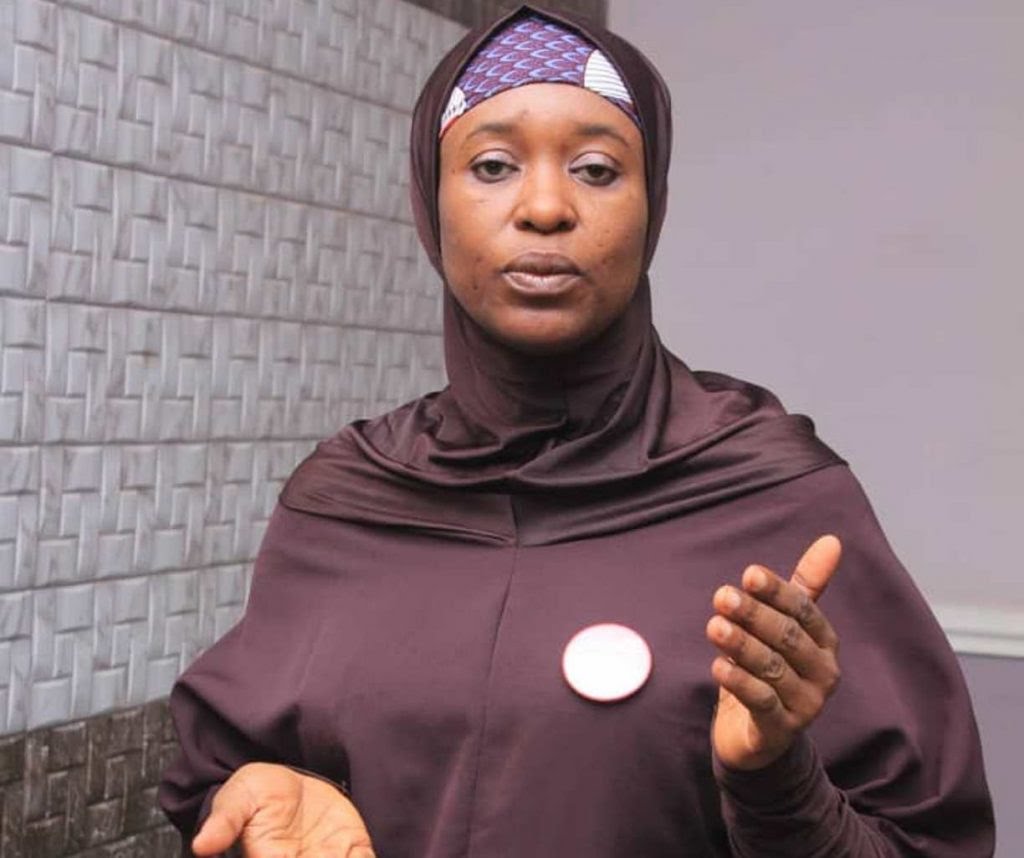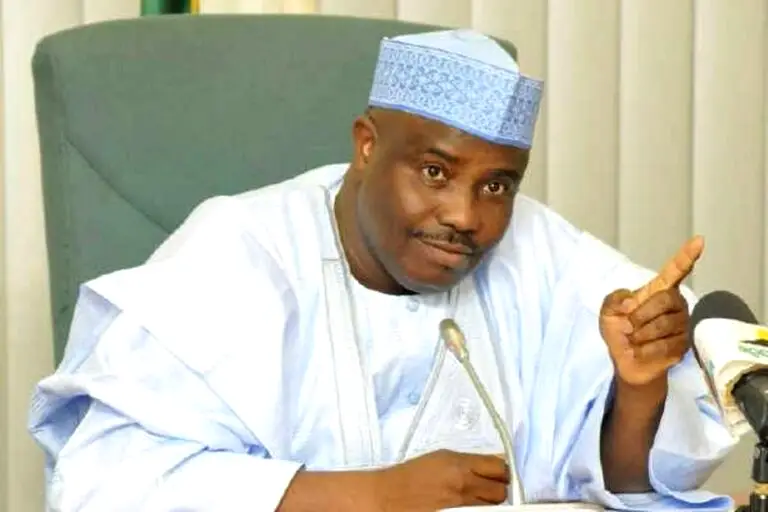[ad_1]
IN a clime where life is war, where talent typically fails for lacking the moisture of state support, and where only a few manage to reach the acme of professional attainments, Chief Emeka Eleazar Anyaoku, ex-Commonwealth of Nations Secretary-General and chair of the Selection Committee of the Obafemi Awolowo Prize for Leadership, must be immensely thankful for the phenomenal story of the last 90 years. If the nation erupts in song and dance today, it has been fully deserved. Every inch a global citizen; an elite personality just at home in Chatham House as he is in his Obosi residence. He is in tune with his native ogene music as he is with engagements on world peace and development.
Anyaoku is one of Nigeria’s finest institutions. The Ichie Adazie of Obosi did not just rise from his humble beginning to become a global citizen; he actually conquered the world with his brilliance, diligence, strength of character and commitment to excellence. It is an alien from Mars who is not conversant with his invaluable achievements as the finest diplomat that Black Africa has ever seen, and as one of the most astute shapers of the currency of global thought. Mention his name and interest immediately rises in America, Asia, Europe, Australia and Africa. He is one diplomat who earned a prime pride of place in decolonization efforts around the globe. The poetry of his engagements in the things that make for world peace flows like a happy stream. And, yes, Anyaoku is 90!
And what greater testimony is there of his unblemished genius than in his continuing, rigorous role of leading a conclave of cardinals of integrity to sift the grain from the chaff and determine the recipient of one of Africa’s most prestigious awards, the Obafemi Awolowo Prize for Leadership? At 90, an age when many cannot even peruse a page, Anyaoku joins others to analyse endless pages of entries and points to the leaders that Black Africa must recognize and honour. Ambassador (Dr) Olatokunbo Awolowo Dosumu, Executive Director of the Obafemi Awolowo Foundation, sums up Anyaoku’s persona in excellent words. According to her, Chief Emeka Anyaoku is a man of excellence, and this has been amply demonstrated through the outstanding successes he recorded, and continues to record, in various high-profile assignments, nationally and internationally.
Her testimony: “When we were putting together the structures for the Obafemi Awolowo Prize for Leadership in 2012, Chief Anyaoku was one of the most obvious choices for membership of our prestigious Selection Committee. We were most delighted that he accepted the appointment. The distinguished members of the Committee were allowed to choose their Chairman and, again, Chief Anyaoku was the obvious choice, and so was unanimously selected. His remarkable reputation preceded him. Chief Anyaoku has, since then, been a wonderful asset to the Obafemi Awolowo Prize for Leadership. Along with his colleagues on the Selection Committee, he has brought considerable experience, total integrity and complete dedication to the selection process for the Prize. In other words, the reputation and credibility that the Prize has acquired in its relatively short period of existence attest to the excellent work of the Committee which he leads. We at the Obafemi Awolowo Foundation value him greatly.”
If, between 2012 and now, only three recipients have been found worthy of the Awo Prize, it is because Anyaoku’s committee and the Awo Foundation are interested in nothing but excellence. The award chaired by Anyaoku recognises neither silver nor gold; it is not determined by political patronage or connections to the high levers of power. No. The Awo Leadership Prize knows no colour, gender, race or religion: what it knows is extraordinary record of service. The awardee may, like the first recipient, Nobel Laureate Wole Soyinka, be an academic who has moved the world forward with the rigour and excellence of his intellect; he may, as the decoration of the second winner, ex-South African president Thabo Mbeki exemplifies, be a politician who used state power to achieve what the sage, Chief Obafemi Awolowo, described as Life More Abundant; or he may be, like the Prize’s third winner, Chief Afe Babalola, a legal icon and a knowledge-lover walking in the Awo path of using education as a tool for addressing social inequality. The point is that the person must be excellence writ large. Chief Anyaoku presides over the selection.
Born on January 18, 1933, in Obosi, Anambra State, Anyaoku was educated at the Merchants of Light School (MOLS), Oba and the University College, Ibadan, where he studied Classics and was a student leader, graduating with a London University Honours degree in 1959. Armed with further education in England and France, he was at 26 already part of the Commonwealth Development Corporation in 1959, an organisation with a mission to facilitate the growth of private sector businesses in emerging economies, and earned plaudits for his role in the push for Nigeria’s independence from Britain. From a stint in Nigeria’s Foreign Service from 1962 to 1966, Anyaoku found his way to the Commonwealth Secretariat as Assistant Director of International Affairs in 1966. He rose through the system crowning the glory of his career with his election as the third Commonwealth Secretary-General at the Commonwealth Heads of Government meeting on 24 October, 1989.
As the erudite scholar, Professor Jide Osuntokun, tells us, the Commonwealth job did not come on a silver platter. He got it in spite of opposition even from former leading Commonwealth heads of state who thought supporting the opponent of Chief Emeka Anyaoku would help the anti Apartheid cause. The argument was that “a white Commonwealth Secretary General would be more effective in persuading the Apartheid regime to abandon its ideological practice of looking at white people as inferior and a black Commonwealth Secretary General would not be able to do it.”
But excellence had no hiding place, and it was Anyaoku who got the job, taking the Commonwealth to phenomenal heights in global affairs for 10 solid years. As noted by Ambassador Jibrin Chinade, ex-Permanent Secretary, Ministry of Foreign Affairs and Ambassador in Moscow and The Hague, Anyaoku “came up with the Harare Declaration, which placed emphasis on good governance, accountability, anti corruption, leadership, and democracy.” Anyaoku’s era saved countries ravaged by strife, coups and civil wars, and was pivotal to South Africa’s freedom from Apartheid: his alliance with the proscribed African National Congress (ANC), now the ruling party in South Africa, is quite the stuff of legend. It was not fortuitous that he had the distinction of addressing a joint sitting of the South African National Assembly in 1998, and was awarded the country’s highest civilian honour, the Order of the Supreme Companions of O.R. Tambo, in 2008. Indeed, the late President Nelson Mandela it was who wrote the foreword to his book, Eye of Fire.
Anyaoku’s diplomatic engagements during the 1967-1970 Nigeria-Biafra war, his peacemaking efforts in Bangladesh and Pakistan, his monumental efforts to resolve the June 12 crisis and his condemnation of the annulment of the election; the swiftness of the Commonwealth’s sanctions on Nigeria following Sani Abacha’s execution of the environmentalist, Ken Saro-Wiwa, among others, are so well documented as to bear no repetition here. Suffice it to say that Anyaoku is Nigeria’s ultimate peacemaker. Anyaoku has all his life been a measured, not tempestuous individual, and he has been even more so since returning home after years of unblemished service across the globe. It is not just by virtue of his training as a diplomat but also by virtue of experience, the circumspection conferred by age and the good education he is blessed to have.
At the home front, while not leading public demonstrations or issuing fatwas, Anyaoku continues to grab the microphone and show the tenants in the corridors of power the way to go. He is an undying treasure to generations of patriotic compatriots. Only last October, speaking at the 11th Emeka Anyaoku lecture series on good governance in Ibadan, he urged Nigerians to vote for only those leaders they could trust to revamp the country’s political structure and security management amongst other concerns, and tasked politicians to also refrain from abuse of persons but focus on issues and manifestos as the 2023 general elections would be a watershed. To him, Nigerians must consider the nation’s diversity as a blessing and work to strengthen its cohesion as other countries of diverse nationality were making significant progress across the globe.
With some 35 years of Commonwealth negotiations across 54 countries behind him; with 32 Honorary Doctorate degrees from universities around the world, and having won the highest national civilian honours of Cameroon, Lesotho, Madagascar, Namibia, Republic of South Africa and Trinidad & Tobago’s Trinity Cross (TC) as well as honorary Knight Grand Cross of the Royal Victorian Order (GCVO) from Her Majesty The Queen of England in 2000, not to mention the Freedom of the City of London honour, Anyaoku has seen it all. As Benjamin Maiangwa, Assistant Professor of Political Science at Lakehead University, Canada, avers: “Few Nigerians have distinguished themselves to their compatriots and the world so much and for so long as Chief Emeka Anyaoku. The former secretary general of the Commonwealth represents the true essence of a public intellectual and leadership.”
Indeed, Afenifere leader, Chief Ayo Adebanjo, says nothing but the truth when he notes that Anyaoku “is one of the people who have made Nigeria great, and he is really a blessing to this country.” Adebanjo’s views are echoed by the Secretary General of Ohanaeze Ndigbo, Ambassador Okey Emuchay, who describes Anyaoku as a study in simplicity and humility and one of the very best Nigeria has ever produced.
As the world rises to make a toast to this diplomat of diplomats, a leader with a heart of gold and a peacemaker par excellence, it is fitting to say as the Scriptures proclaim: “It is The Lord’s doing, and it is marvelous in our sight.”
READ FROM ALSO NIGERIAN TRIBUNE
[ad_2]





